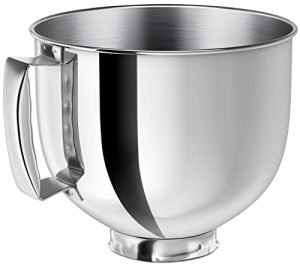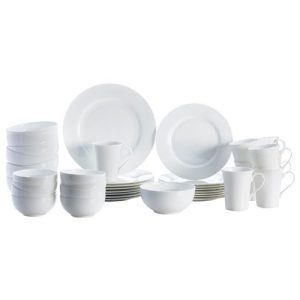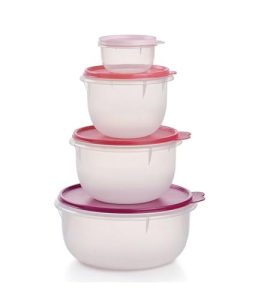Imagine waking up to the perfect cup of coffee made by your Ninja Coffee Maker. It’s a satisfying ritual you cherish each morning.
But have you ever wondered if your beloved coffee maker is truly safe? Specifically, is it BPA-free? You deserve peace of mind knowing that your coffee is free from harmful chemicals. You’ll discover everything about the materials used in Ninja Coffee Makers and whether they meet your safety standards.
Keep reading to uncover crucial information that could change the way you enjoy your coffee forever. Your health is worth it.
What Is Bpa?
When considering the purchase of a Ninja Coffee Maker, you might be curious about its BPA status. But what exactly is BPA? BPA, or Bisphenol A, is a chemical used in making certain plastics and resins. It’s found in various consumer products, and there’s a growing conversation about its impact on health.
Health Risks Of Bpa
Studies suggest that BPA can seep into food or beverages from containers made with this chemical. This is concerning because BPA exposure has been linked to possible health risks. For example, it may affect hormonal balance and has been associated with heart issues.
Imagine pouring hot coffee into a cup made with BPA-laden plastic. You might inadvertently expose yourself to these risks. Wouldn’t you prefer peace of mind when enjoying your morning brew?
Common Bpa Sources
BPA is prevalent in everyday items. Think of plastic water bottles, food containers, and even some thermal paper receipts. It’s surprising how often you might come across it in daily life.
When you choose products, it’s wise to consider their composition. Checking labels for BPA-free tags can be a simple step towards safeguarding your health. Have you ever paused to ponder what’s in the materials you use every day?
In the case of Ninja Coffee Makers, knowing whether they’re BPA-free can make your purchase decision easier. After all, who wouldn’t want to enjoy their coffee without the worry of unwanted chemicals?
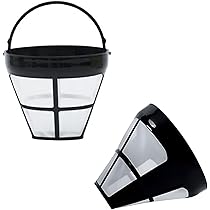
Credit: www.amazon.com
Ninja Coffee Makers Overview
Ninja Coffee Makers have gained popularity for their versatility and efficiency. They cater to coffee enthusiasts seeking quality and convenience. Many models offer a variety of brewing options. This allows users to enjoy a personalized coffee experience. Ninja’s innovative designs ensure ease of use and maintenance.
Popular Models
Ninja offers several coffee maker models, each with unique features. The Ninja Specialty Coffee Maker is well-loved for its specialty brew options. Another popular choice is the Ninja Hot and Cold Brewed System. It provides both hot coffee and iced beverages. The Ninja DualBrew Pro stands out with its dual brewing system. This gives users flexibility in choosing ground coffee or pods.
Design And Features
Ninja coffee makers boast sleek and modern designs. Their compact size fits well in most kitchen spaces. Many models include a built-in frother for creamy drinks. The intuitive control panels make brewing simple. Most models feature multiple brew sizes for different needs. Some even offer thermal carafes to keep coffee hot longer.
Bpa In Coffee Makers
Many coffee enthusiasts are concerned about BPA in coffee makers. BPA, or Bisphenol A, is a chemical found in some plastics. It can leach into food or drinks from containers. This raises health concerns. Understanding BPA presence in coffee makers is essential. It helps ensure safe brewing for daily caffeine rituals.
Materials Used
Coffee makers are crafted from various materials. Plastic, metal, and glass are common. Not all plastics contain BPA. Manufacturers often use BPA-free plastics. Yet, some older models might still have BPA-containing plastics. Checking material labels is crucial. It helps identify BPA presence. Consumers should prefer BPA-free labeled products.
Potential Bpa Exposure
Potential BPA exposure occurs through plastic components. Heating plastic can release BPA. This can mix with coffee during brewing. Regular contact with BPA can pose health risks. Manufacturers now focus on reducing BPA exposure. They design coffee makers with safer materials. This ensures healthier coffee enjoyment. Always opt for newer models. They are likely BPA-free.

Credit: www.amazon.com
Are Ninja Coffee Makers Bpa Free?
Are you considering a Ninja Coffee Maker for your kitchen? You might be wondering about its safety features. Many buyers ask, “Are Ninja Coffee Makers BPA free?” BPA is a harmful chemical found in some plastics. It can seep into beverages and pose health risks. Knowing whether your coffee maker is BPA-free is crucial for health-conscious consumers.
Manufacturer’s Claims
Ninja claims their coffee makers are BPA-free. This statement is reassuring for potential buyers. They emphasize using high-quality materials. Such materials are meant to ensure safety and durability. The company’s transparency about product safety is commendable. It helps build trust with users.
Third-party Testing
Independent labs often test kitchen appliances. These tests verify manufacturers’ claims. Many Ninja coffee makers have undergone these tests. The results usually confirm Ninja’s BPA-free claims. Third-party testing adds an extra layer of assurance. It gives consumers more confidence in product safety.
Comparing Bpa-free Alternatives
Choosing a coffee maker that prioritizes your health can be a daunting task. Many consumers are now seeking BPA-free alternatives to traditional coffee makers. This shift isn’t just about the latest trend; it’s about making informed choices for your well-being. But how does the Ninja Coffee Maker stack up against other brands? And what makes BPA-free models different? Let’s dive into these questions.
Other Brands
Several coffee maker brands claim to be BPA-free, each offering unique features. Brands like Keurig and Cuisinart have models that are highly rated for their BPA-free components. But what truly sets them apart?
- Keurig: Known for its convenience, Keurig offers a range of BPA-free coffee makers. Their sleek designs and user-friendly features make them popular among busy individuals.
- Cuisinart: This brand combines style with functionality. Cuisinart’s BPA-free models are often praised for their durability and consistent brewing performance.
When comparing these to Ninja Coffee Makers, consider what matters most to you. Is it speed, design, or reliability? Each brand has its strengths. Ninja stands out with its innovative brewing technology, offering a unique coffee experience.
Key Differences
So, what differentiates these BPA-free coffee makers? It’s not just about the absence of BPA; it’s about the overall experience and features.
- Brewing Options: Ninja offers multiple brew styles, which can be more versatile than some other brands. You might enjoy experimenting with different coffee types.
- Price Point: While Ninja coffee makers are generally affordable, some brands might offer cheaper options. Consider what fits your budget without compromising quality.
- Design and Ease of Use: Ninja’s user-friendly interface appeals to tech-savvy coffee lovers. How important is ease of use in your daily routine?
Choosing the right coffee maker involves understanding these differences and aligning them with your preferences. Do you value variety over simplicity, or are you looking for the best deal? Making the right choice can enhance your coffee experience while ensuring health safety. What’s your priority when picking a coffee maker? Let us know in the comments below.
Tips For Choosing A Bpa-free Coffee Maker
Ninja coffee makers are generally BPA-free, providing a safer brewing experience. Check the product specifications for confirmation. Choosing a BPA-free option ensures that your coffee is free from harmful chemicals.
Choosing a BPA-free coffee maker can be a bit of a puzzle, especially with the numerous options available in the market. You want to ensure your morning brew is not only delicious but also free from any harmful chemicals. If you’re considering a Ninja Coffee Maker, you’ll be glad to know that many models are designed with health-conscious materials. But, how do you decide which one is right for you? Here are some tips to guide you in selecting a BPA-free coffee maker.Features To Look For
Start by checking the product specifications. Look for clear labels stating “BPA-free” on the packaging or manufacturer’s website. This is a good sign that the materials used in the coffee maker are safe. Consider the design of the coffee maker. Stainless steel and glass components are generally BPA-free and can be a healthier option than plastic parts. You might prefer a coffee maker with a thermal carafe; they often keep coffee hot longer without the use of BPA-containing plastics. Pay attention to the brewing system. Some coffee makers use single-serve pods that may contain BPA. Opt for models that allow you to use your own coffee grounds instead.Maintenance And Care
Keeping your coffee maker clean is essential for both taste and health. Regular cleaning prevents the buildup of old coffee oils and residue, which can affect flavor. Use natural cleaning solutions like vinegar and water to descale your coffee maker. This helps maintain the integrity of any BPA-free components, ensuring they remain safe and functional. Check the manufacturer’s instructions for specific cleaning guidelines. Proper maintenance not only prolongs the life of your coffee maker but also ensures it continues to provide safe, delicious coffee. Consider how easy the coffee maker is to disassemble for cleaning. Models with removable parts can be easier to clean thoroughly, ensuring no traces of old coffee or harmful residues linger. Have you ever wondered how your choice of coffee maker might impact your health in the long run? By selecting a BPA-free option, you are taking a proactive step towards healthier living. Remember, the best coffee maker is one that fits your lifestyle while keeping your brew safe and delightful.Consumer Reviews And Experiences
Ninja Coffee Makers are popular among coffee enthusiasts. People admire their durability and advanced features. But many ask if these machines are BPA free. Understanding real user experiences can help shed light on this concern.
User Feedback
Many users express satisfaction with Ninja Coffee Makers. They praise the design and ease of use. Several reviews highlight the machine’s efficiency in brewing coffee. Users often mention the rich flavor it produces. They appreciate the stylish appearance of the coffee maker. A few users also note its compact design fits well in small kitchens.
Feedback on safety is generally positive. Many users believe Ninja Coffee Makers are BPA free. This belief is based on the brand’s reputation for safe products. Positive feedback often relates to the machine’s reliability over time. Users report few issues with breakdowns or malfunctions.
Common Concerns
Some consumers have concerns about plastic materials. They worry about potential BPA exposure from the coffee maker. Despite assurances from the brand, doubts persist among a minority. A few reviews mention questions about the longevity of the machine. Users express concerns about parts wearing out quickly.
Noise level is another common concern. Some users find the machine loud during operation. This noise can be disruptive in quiet environments. Others mention issues with cleaning certain parts. They find it challenging to maintain the machine’s cleanliness over time.
Overall, Ninja Coffee Makers receive mixed reviews. User experiences vary based on individual needs and preferences. Understanding these reviews can guide potential buyers. It’s crucial to consider both positive feedback and common concerns. This helps in making an informed purchase decision.
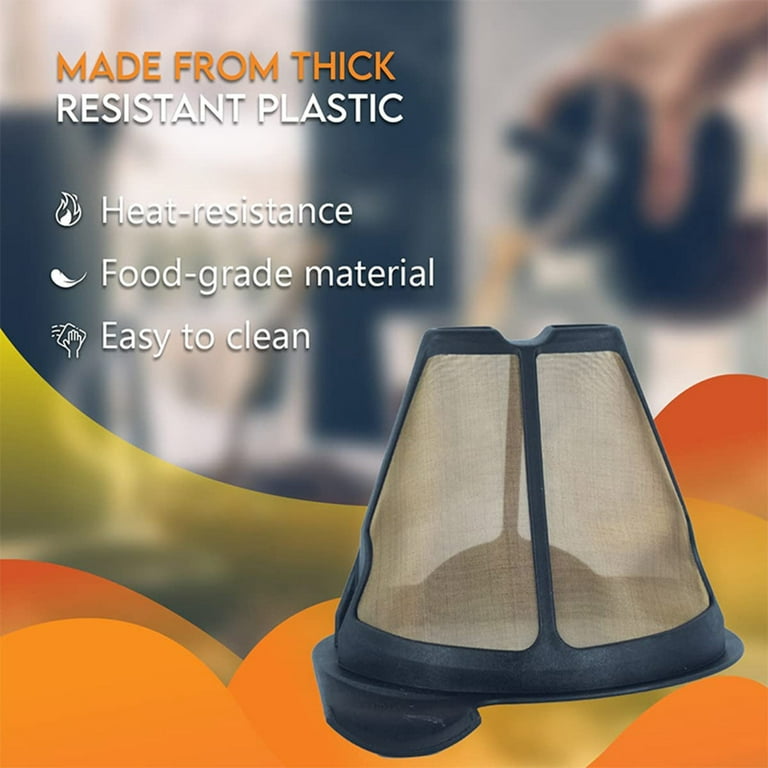
Credit: www.walmart.com
Frequently Asked Questions
Is Ninja Coffee Bpa Free?
Yes, Ninja coffee makers are BPA free. They use high-quality, food-safe materials for safe brewing. Enjoy coffee without worry.
Are There Any Coffee Makers That Are Bpa Free?
Yes, many coffee makers are BPA-free. Brands like Keurig, Cuisinart, and Bonavita offer BPA-free models. Always check product specifications for confirmation.
How Do I Know If My Coffee Maker Is Bpa Free?
Check the product label or manual for “BPA free” information. Contact the manufacturer for confirmation if uncertain.
What’s The Safest Coffee Maker?
The safest coffee makers use BPA-free materials and have automatic shut-off features. Consider brands like Technivorm Moccamaster or Bonavita, known for their safety certifications. Always check for UL or ETL safety ratings to ensure the coffee maker meets safety standards.
Regular maintenance also enhances safety.
Conclusion
Ninja Coffee Makers are a safe choice for BPA-free brewing. They prioritize health, using materials free from harmful chemicals. Enjoy your coffee without worry. These makers offer quality and safety combined. For coffee lovers, peace of mind matters. Choosing BPA-free products ensures a healthier lifestyle.
Ninja designs are thoughtful, catering to modern health needs. Always check product details for assurance. Make informed decisions for your daily brew. Safety in coffee making is essential. Ninja provides both taste and trust. Enjoy every sip, knowing you’ve made a wise choice.
Your health deserves the best.

